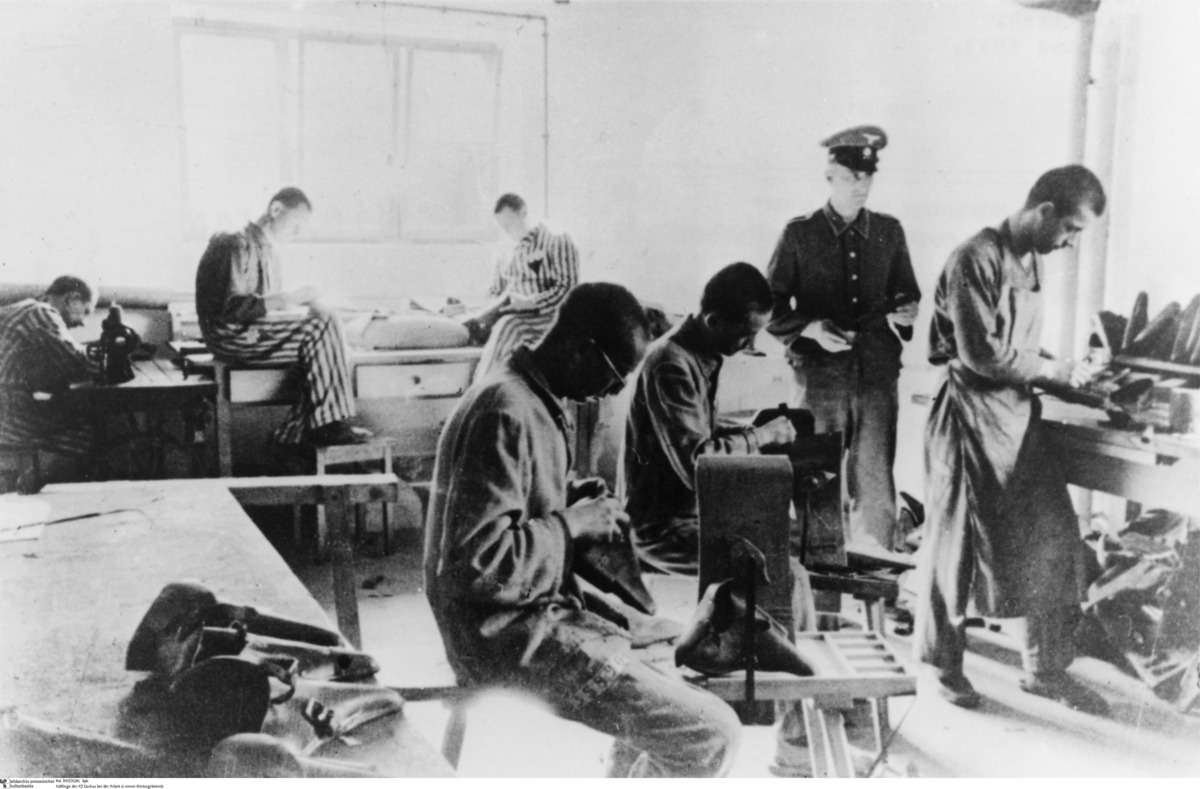Abstract
In addition to the mass mobilization of foreign workers, the Nazis
increasingly used concentration camp prisoners as forced laborers during
the war. SS-owned companies such as the German Armaments Works
[Deutsche Ausrüstungswerke or DAW]
and the Society for Textile and Leather Processing
[Gesellschaft für Textil- und
Lederverwertung or Texled] exploited the prisoner labor force. In
September 1942, after several months of negotiations, the SS Economic
and Administrative Main Office
[SS-Wirtschafts- und
Verwaltungshauptamt] and the Armaments Ministry, led by Albert
Speer, reached an agreement whereby the employment of prisoners was
extended to the armaments industry. From that point on, companies were
allowed to “lease” prisoners from the SS for a fee and exploit them as
cheap labor. Satellite camps were set up near factories for this
purpose. In late 1944, approximately 500,000 concentration camp
prisoners were being used as forced laborers.
The photograph shows a camp guard watching over Dachau prisoners as
they perform slave labor. In addition to a Waffen-SS clothing factory,
the SS ran factories for the German Armaments Works and the German
Foodstuffs Association [Deutsche
Lebensmittel GmbH or DLG] directly in the Dachau camp. It also
oversaw the “plantation” (herb garden and agricultural field) of the
German Laboratory for Nutrition and Food
[Deutsche Versuchsanstalt für Ernährung
und Verpflegung or DVA].
